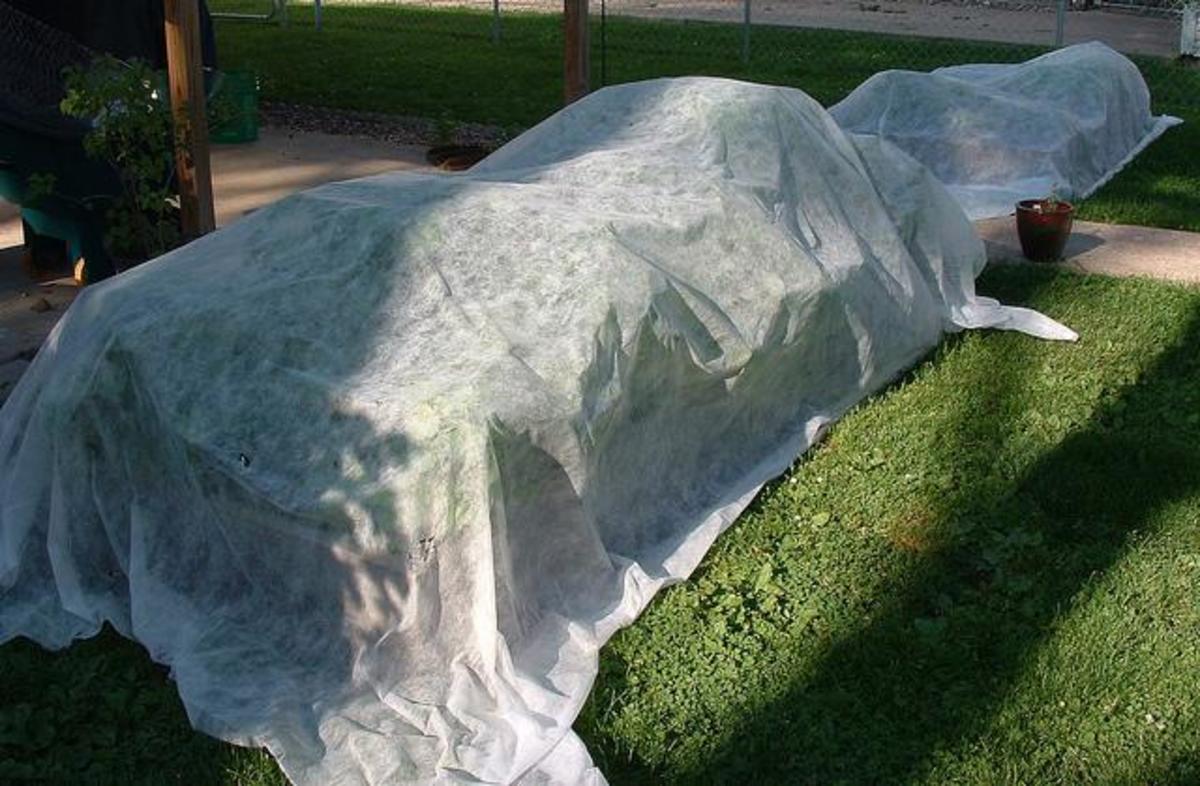
Here are some easy tips for protecting your fragile plants from winter temperatures. Especially flowering plants are susceptible to winter freezes. Even though the snow is falling, there are still some ways you can care for your garden plants, states Dennis Sons from Tennessee Wholesale Nursery. Choose from our top 5 easy things you can do to pamper your garden during the winter:

Baby the branches
If your region gets heavy snow, be sure to gently brush if off of your garden’s fragile branches before they break off under pressure. Carefully free young trees and shrubs from heavy snow, then check for and prune any weather-damaged limbs. If there’s still ice covering the legs, let it naturally melt before pruning. You can also prune any fruit trees, ornamentals, and other types you may have in your garden.
Mind the melters
Instead of spreading salt and other commonly used and plant-damaging ice melters on your garden paths and walkways, opt for other choices like:
Sand
Birdseed
Sawdust
Kitty litter (plain clay)
Small gravel
Vermiculite
Straw
Pickle brine
Alfalfa Meal
Sugar beet juice
Coffee grinds, used
Urea
White vinegar and water (3 parts to 1 part, place into a spray bottle)
Fireplace ash
Feed the critters
Keep your favorite wildlife fed and happy (especially the beneficial ones) through the winter months by placing some food out for them. Try out:
Hang cakes of suet from tree branches to attract and keep insect-devouring woodpeckers around
Put out seed-filled feeders for other birds -- and make sure it’s out of reach of squirrels.
Toss out some corn cobs for the squirrels and other little furries, like chipmunks
Set out Heated Bird Baths
When your bird friends decide to stick around, they’re going to want to take a bath. Help them out with a heated birdbath. Helpful Note: We checked around, and you can get some outstanding deals on some (like several on sale for 2 for $80 or cheaper), and some won’t turn on unless the temperature dips below zero degrees.
What’s more? If you purchase a style that rests low to the ground, other animals will show up and drink from them as well. Shop around to see what you can find!
Bury some bulbs and bare roots
For any forgetful gardeners out there who didn’t quite make the deadline for bulb-planting, take heart! You can still plant them now in containers if you keep them somewhere colder than 48 degrees Fahrenheit but warmer than the freezing temps outside (i.e., the garage, perhaps?). Put together a boldly colorful arrangement in a six or eight-inch pot. You can move around as you wish or transplant them directly into your garden in the spring.
If you have any bare-root trees and shrubs, winter is a great time to plant them. They’re usually stocked right after the Christmas trees and are half the price of other plants, so there will often be numerous types to choose from, including roses, berries, ornamentals, fruit trees, and more.
Tennessee Wholesale Nursery specializes in bare-root plants, shipped during the dormant season! Buy your bare root plants here.
Work with a winter mulch
Keep your plants dormant longer by spreading a ground-cooling layer of mulch over them during the winter. This prevents early growth when warm spells occur, which ultimately kill plants with the next frost and snowfall. Winter mulch can consist of:
Pine needles and branches from your discarded Christmas tree
Straw
Shredded bark
Wood chips
Nutshells
Shredded leaves
Hay
Snow
Keep in mind that mulch should not comprise anything that keeps out the air and sunlight ultimately. It should be a loose, insulating amalgamation.
Grow a Winter Garden
Did you know certain crops grow well in the winter? There are a few that even taste better when harvested in the winter because the cold makes them sweeter. Try for a winter garden of veggies like kale, spinach, celery, carrots, leeks, beets, onions, chard, garlic, lettuce, peas, asparagus, Brussel sprouts, cabbage, radishes, and bok choy.
Try a transplant or two
If you’ve wanted to transplant any trees or larger shrubs, the best time to do it is winter. Assuming the ground is still workable and not completely frozen, you should be able to dig deep enough for this smooth transition. This seasonal timing gives them a chance to get themselves sorted once placed into new ground, and ready to grow and show their best spring buds and foliage once the sunlight brings the first thaw of spring.
Contact Tennessee Wholesale Nursery with all your gardening needs and questions -- we look forward to hearing from you! If you’re ready to order from our current catalog or need some gardening advice or suggestions, you can call us here: 931-692-4252 or here: 888-704-0060 or email us here: https://www.tennesseewholesalenursery.com/contact-us/ anytime. We’re always here for you as our motto is, ‘Our customers are the best part of our day’!



























